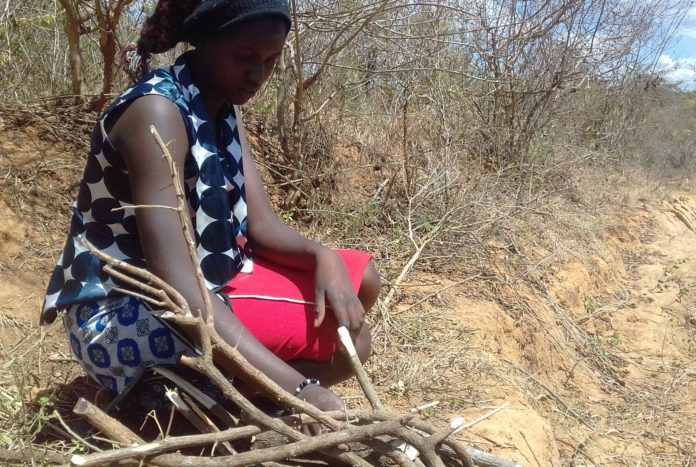By Katheru Njagi
Central Kenya: Francis Wambua, 12, looked at his hungry family before picking a hoe and plunging the loose earth at their one-acre piece of land in Nkuthika village, central Kenya, with angry thrusts.
Normally, the grade seven pupil would be in school at this time of the year. But COVID -19 that infected Kenyans since March 13, 2020, has kept him home after the government ordered all schools closed to contain the spread of the virus.
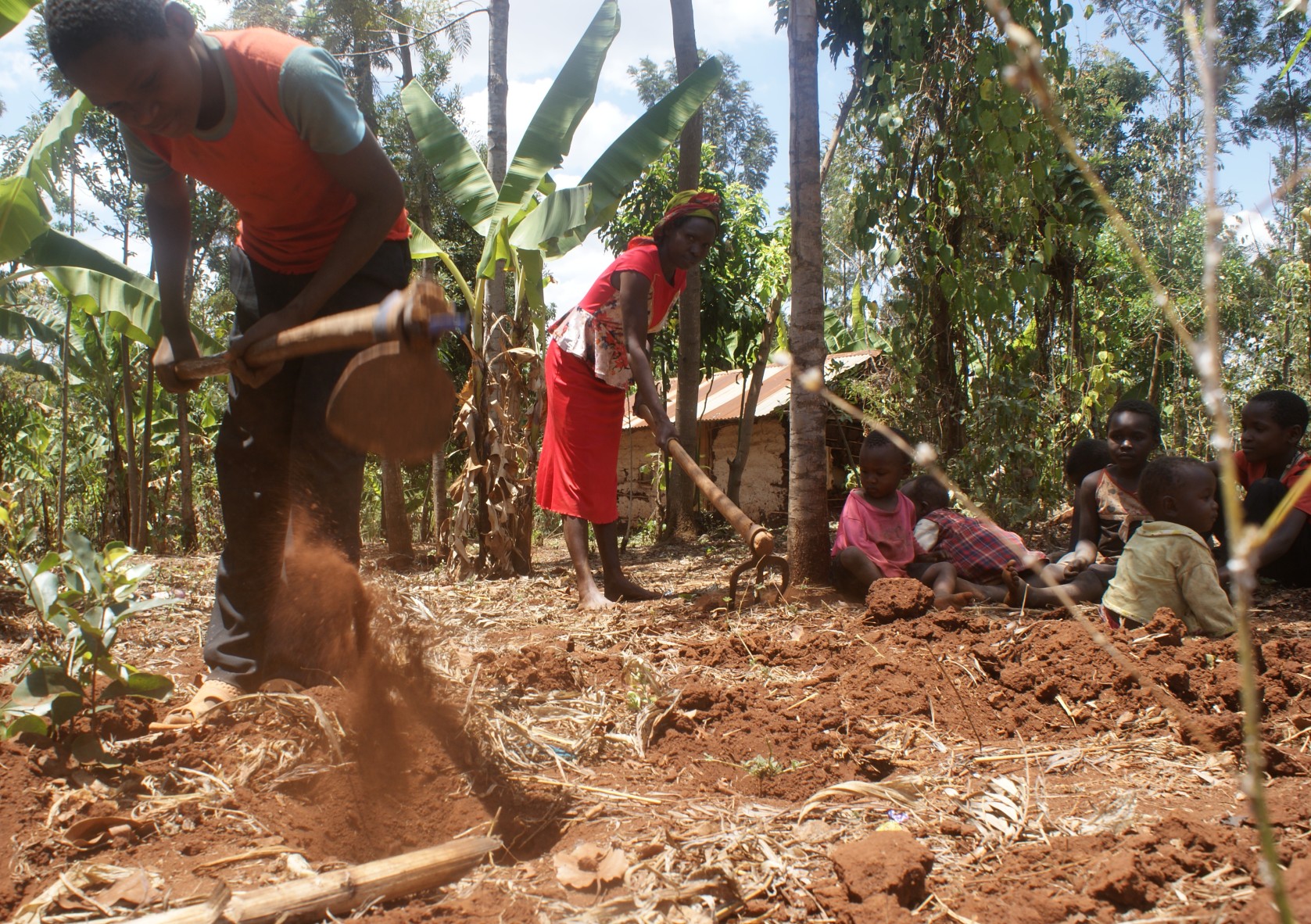
The same government, however, did not equip students from rural Kenya with alternative learning streams to keep them occupied as the pandemic dimmed any hopes of returning to class.
And so, some like Wambua must work at their parents’ farm instead of studying, until the virus lockdown passes.
“I feel very helpless. I enjoy being in school but I am not there. My father lost his job because of the virus and so most days we have no food. I want to help my mother work on our land so that at least we will have food during the next harvest,” said Wambua as his five siblings looked on.
Wambua feels it is his duty to help out his parents on the farm because there is nothing else to do at home. Early in the year, the government had promised to roll out internet connections in rural Kenya through google balloons to help children like him access virtual learning.
But one year down the line, marginalized children in rural Kenya are yet to receive the government-supported virtual learning service.
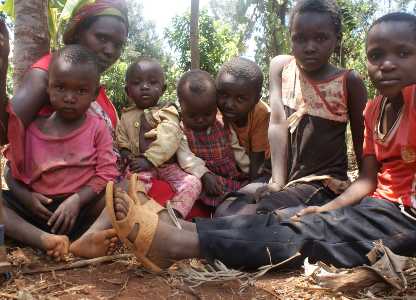
Like many others, Wambua passes the COVID -19 lockdown working at the farm. A growing number of them too have taken paid manual labour in quarries, tea farms, khat farms, and even sex work.
That does not surprise teacher Mercy Kasiti, who blames the government for the suffering children like Wambua are going through. She is not sure whether the education sector will ever be revived in Kenya.
“If you walk around you will see child labour happening because they are not being properly treated by their parents who are struggling with mental stress. This would have been avoided if the children were still connected to their teachers through virtual learning platforms,” said Kasiti.
A study conducted by Human Rights watch between April and August 2020 in nine African countries including Kenya, reported that the pandemic has escalated child abuse in marginalized parts of Africa, including sliding back into child labour.
Another study conducted recently by the African Medical and Research Foundation (AMREF) reported young Kenyans complaining about increased housework and farm activities that are not their responsibility while they were at home.
The study, knowledge, attitudes, practices, and effects of COVID -19 among youth in Kenya, noted that there have been increased levels of stress among the youth in Kenya, a situation that could have catalyzed human rights abuses like child labour.
According to Evalin Karijo, project director on youth advocacy at AMREF and one of the study authors, the issue of child labour is not just a violation of human rights but also leads to decline in mental health.
“It is against the law to force Kenyans below the age of 18 years to work. It is an issue of rights abuses because child labour contributes to declining in mental health,” said Karijo.
In rural Kenya, child welfare organizations are alarmed by the growing number of learners who have joined paid labour. Most of them insist they would rather continue doing paid work than return to school because it gives them economic security, investigations reveal.
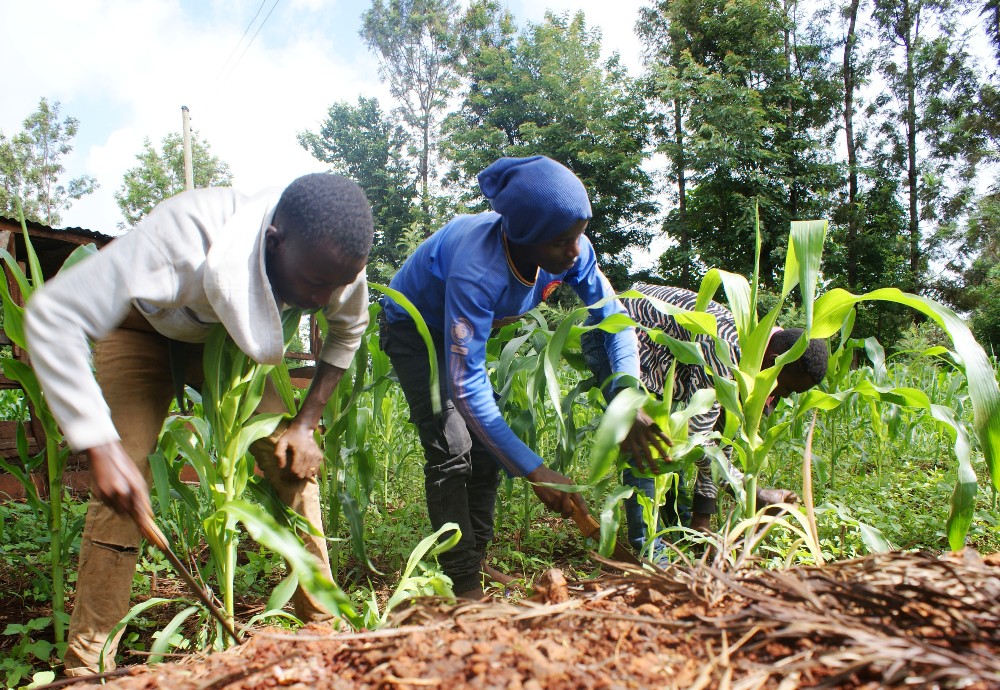
Seated at a wooden shed that Grace Murugi has been calling her retail kiosk for the last 10 years, the mother of three from Muiru village, central Kenya, waits for her 13-year-old son to join the family for lunch.
Unknown to her, the youngster joined his peers early in the morning for masonry work at a distant construction site after being lured by the appeal of instant money.
Benson Kirugu, a foreman at a construction site in Chuka town said most locals reporting for work are expected to show a national identification card to prove that they are not underage workers.
But most construction sites, like the one Murugi’s son, is working at are ignoring this legal requirement during the COVID -19 pandemic.
The main reason for their changed attitude is that construction sites have been hit by the recession as banks cut lending for property development due to the pandemic. Most investors sent their adult labour force home because they could not afford to pay them.
But the availability of child labour provided by idling young persons – and whom they can pay cheaply – has replaced the adult pool. Like Murugi’s son who does not have a national identity card, all one needs to do is pay a bribe to the foreman and one is in business, investigations reveal.
“I feel very scared because I know my son is not used to paid manual labour. When he tastes the feel of instant money it will be very difficult to convince him to go back to school,” said the 34-year-old mother.
Kenya’s Ministry of Education is attempting to assure parents like Murugi that it will not allow dropouts to happen in the country after schools re-open on January 4th, 2021.
One of the things the education ministry is putting in place is a system where school fees will be subsidized to support learners from poor families, according to the education cabinet secretary, Prof. George Magoha.
Another is equipping schools with COVID -19 prevention and control measures to contain the spread of the virus among learners.
Yet another is rolling out internet connectivity in rural Kenya to ensure that learners from marginalized communities do not continue to miss out on education in the long term due to the pandemic.
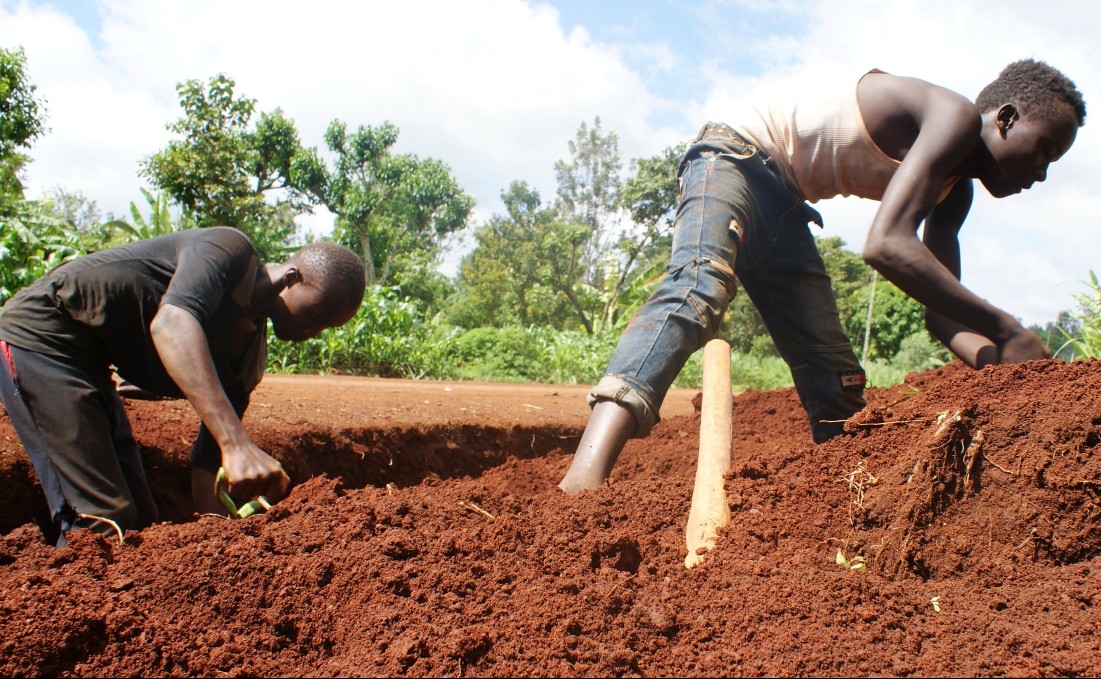
But past experiences with government-supported education programmes have only ended up as empty promises, leaving marginalized communities clinging to false hope, teacher Kasiti said.
For instance, the promise to provide all public schools with laptops a decade ago has never been fulfilled.
The government was also planning to establish community learning centres to help children from poor families continue with their education as the pandemic set in. This too turned out to be an empty promise.
“These programmes would have distributed opportunities for all public schools to roll out community learning. This would have enabled the staggering of learning to ensure that all learners don’t lose touch with their books during the pandemic,” said Kasiti.
A good number of learners however have lost touch with their books due to the government’s failed education programmes, including 14-year-old Purity Muthoni.
Every two days in a week, the Grade six pupil leaves her parents’ home in Kiritiri village to search for laundry jobs in Embu town’s richer estates.
After washing clothes for her employers all day, Muthoni takes her payment back home to her parents who then budget it for the family’s basics like food. There is hardly enough to buy books for their daughter.
Her family, who rely on rain-fed agriculture as their source of livelihood, were hit by the locust invasion that swarmed eastern, northern and central Kenya in the better part of 2020.
Still the rains that poured on their farm were not adequate enough to support their seasonal crop of maize and beans. All this, coupled with the COVID -19 pandemic, has left Muthoni’s family destitute and on the brink of starvation.
“Some of the learners that we teach come from struggling families and so we understand when they help out their families with casual labour. But this is not an excuse for school going children to be exploited with work that their older kin can do,” said teacher Pauline Mwende from Kangoya village in central Kenya.
Thomas Mwiraria, an elder from Muiri village in eastern Kenya argues that the slide into child labour due to COVID-19 could have been prevented if the government had listed community social workers as essential service providers.
According to the 65-year-old elder, community social workers are usually aware of the problems facing children from marginalized communities, where some have even volunteered their services to help struggling families.
These workers were however locked down along with other Kenyans during the pandemic, hence their interaction with families in rural Kenya struggling with the pressures of COVID -19 were restricted.
Mwiraria said cultural practices dictate that a child is the property of the family to be used at the parents’ disposal. But Community social workers would have helped these families to understand that this is wrong.
“Many parents in villages are not aware that subjecting their children to any form of labour which can distract them from their education is a violation of human rights. This could explain why we are seeing increased cases of child abuse,” said Mwiraria.
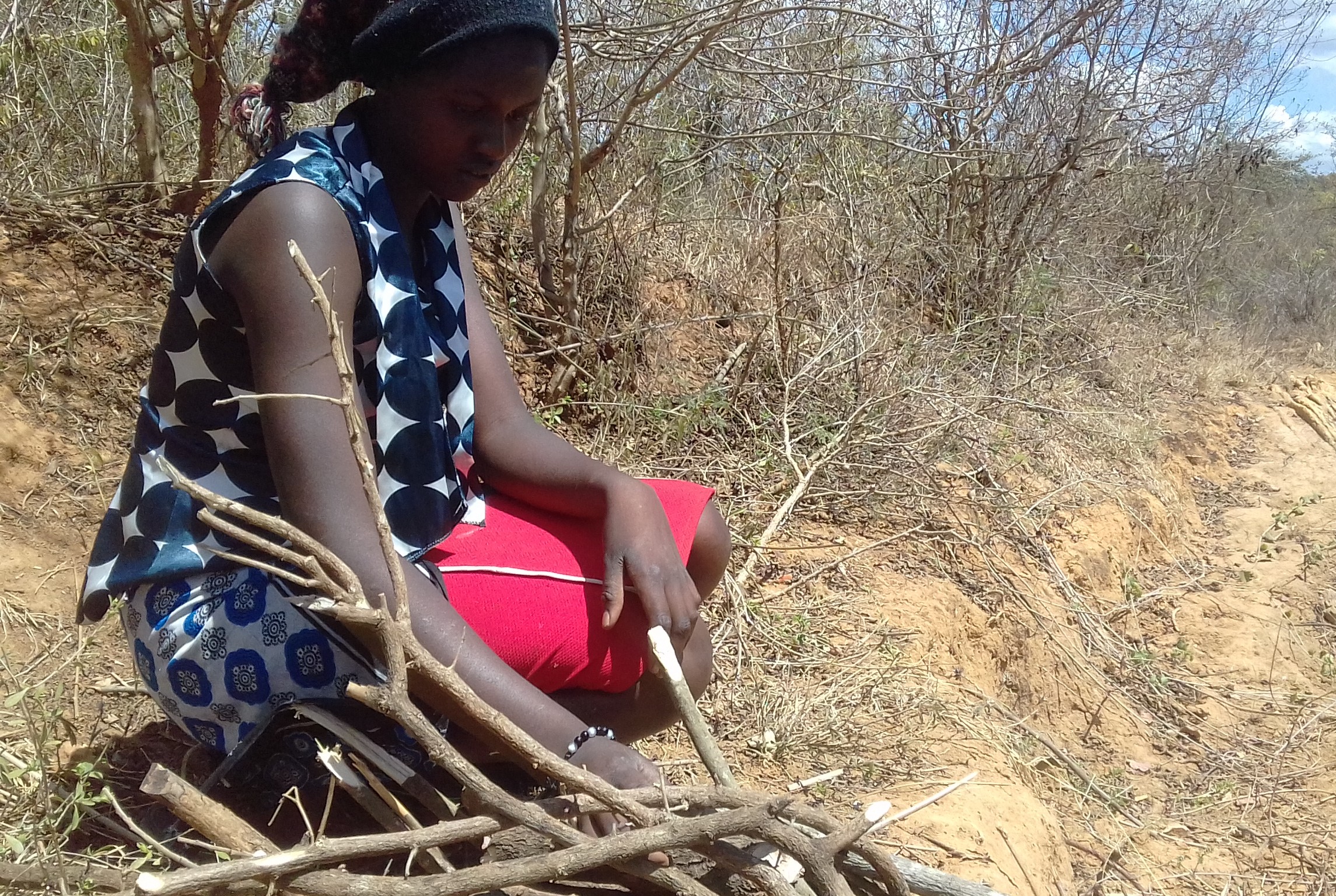
Tabitha Nyambura, the head of the national gender and equality commission said article 53 of the constitution of Kenya protects every child from abuse, neglect, harmful cultural practices, all forms of violence, inhuman treatment and punishment, and hazardous or exploitative labour.
Her commission which is mandated to conduct research on matters relating to the rights of the child is yet to issue a report on the plight of children in Kenya during the COVID -19 pandemic and the long-term effects.
She however said her office has been working with other government agencies and development partners to ensure children continue having safe spaces during, and after the pandemic.
Meanwhile, Wambua from Nkuthika village knows the safest space he can get at the moment is being close to her struggling parents and helping them with farm work as he waits for schools to re-open.
But the daily grind of working the farm for a whole year instead of being in school is already taking its toll on his four-foot frame – and his stressed mind.
“I cannot even remember the last subject that I studied in class before the schools were closed. I am not sure I even want to remember,” said Wambua.
This story was produced with assistance from the National Geographic’s COVID -19 emergency fund.

